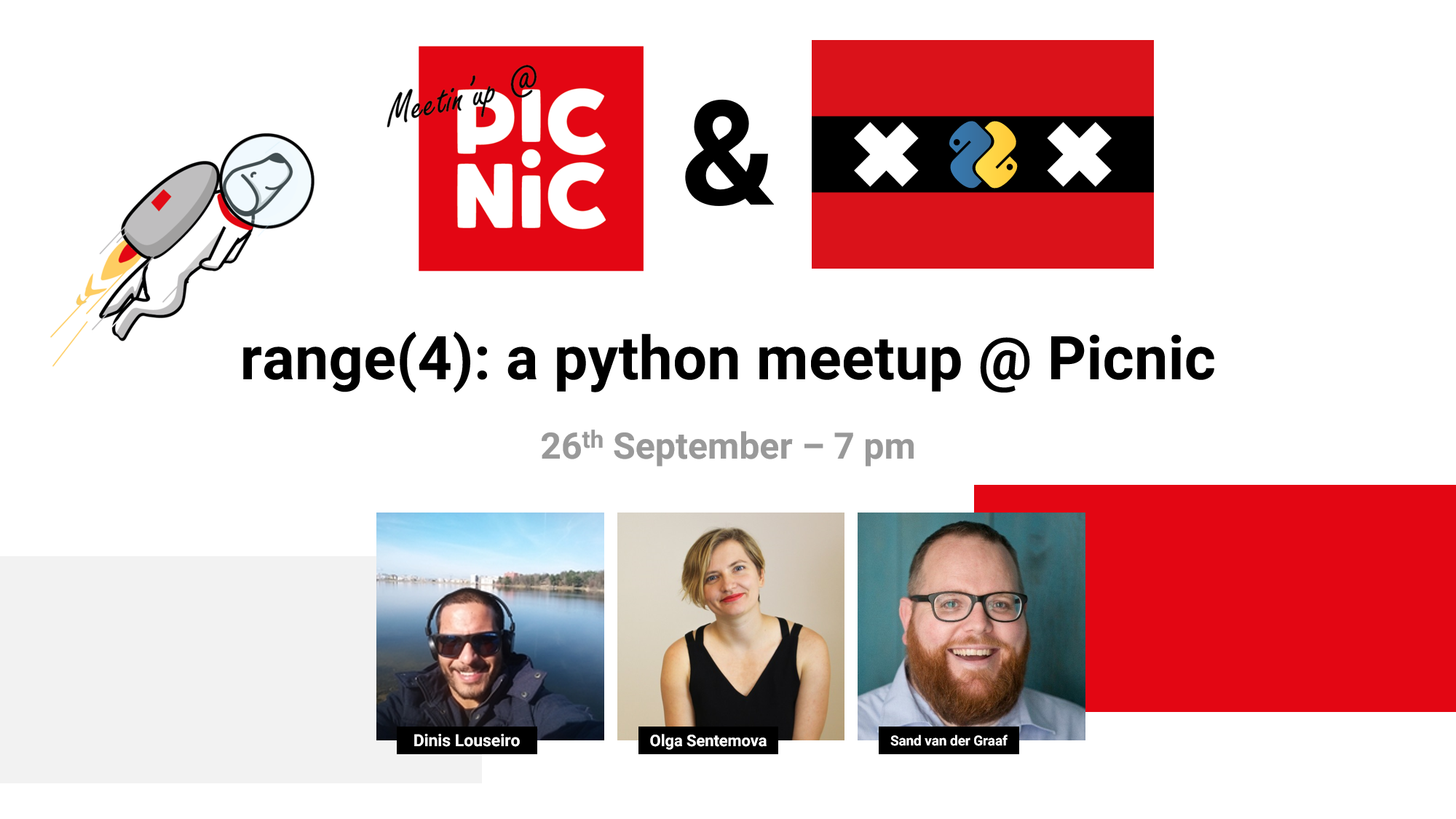We are happy to announce the fourth instance [1] of the PyAmsterdam meetup. This event will be kindly hosted by Picnic [2], make sure to check out their meetup group for other events. https://www.meetup.com/Meetinup-Picnic/

We are currently looking for talks and speakers. Preferred topics are: testing, async, serverless, GUI, data visualisation. To submit a talk you can: Create PullRequest at: https://github.com/PyAmsterdam/py-meetups Contact us via meetup.com
In case you would like to share something cool but do, we will also give space for but do not feel like a giving a longer talk, there is also an option for a lightning talk (5 minutes max).
Schedule
| 18:00 | Welcome |
| 19:00 | Data Warehouse Automation in Python (Dinis Louseiro) |
| 19:30 | 5 min break |
| 19:35 | Detecting Outages at Scale (Sander van de Graaf) |
| 20:40 | 5 min break |
| 20:45 | Getting started with FPGA with Python (Olga Sentemova) |
| 20:45 | Networking |
| 21:00 | Closing time |
Data Warehouse Automation in Python
At Picnic, decisions are always backed by data. Coming from a variety of systems, this data is then crunched with the help of Python and SQL. During this talk, we will walk you through our journey of building the ultimate source of truth, the Data Warehouse. We will also show you how Python has helped us create a Data Vault capture framework, and how we applied strong Software Engineering principles to ensure our pipelines are always robust and maintainable.
Detecting Outages at Scale
Sometimes the internet is having a bad day, and Facebook, Instagram or Whatsapp doesn't work. You and countless of other people rush to downdetector.com to check if that's really the case. Here's our story about the last Facebook outage, and how we made our service scale.
Getting started with FPGA with Python
FPGA is becoming more and more popular in many fields such as IOT, video processing. It also used to make computations for machine learning and trading technologies more effective. Unfortunately for newbies to this technology, it is quite complicated and usually requires using specific languages: Verilog and/or VHDL. But with frameworks such as myVDL and PYNQ Python developers also can explore these opportunities. We'll look into FPGA technology, touch what it is and where and how it's used. Also, where can Python developers start and what they can achieve.